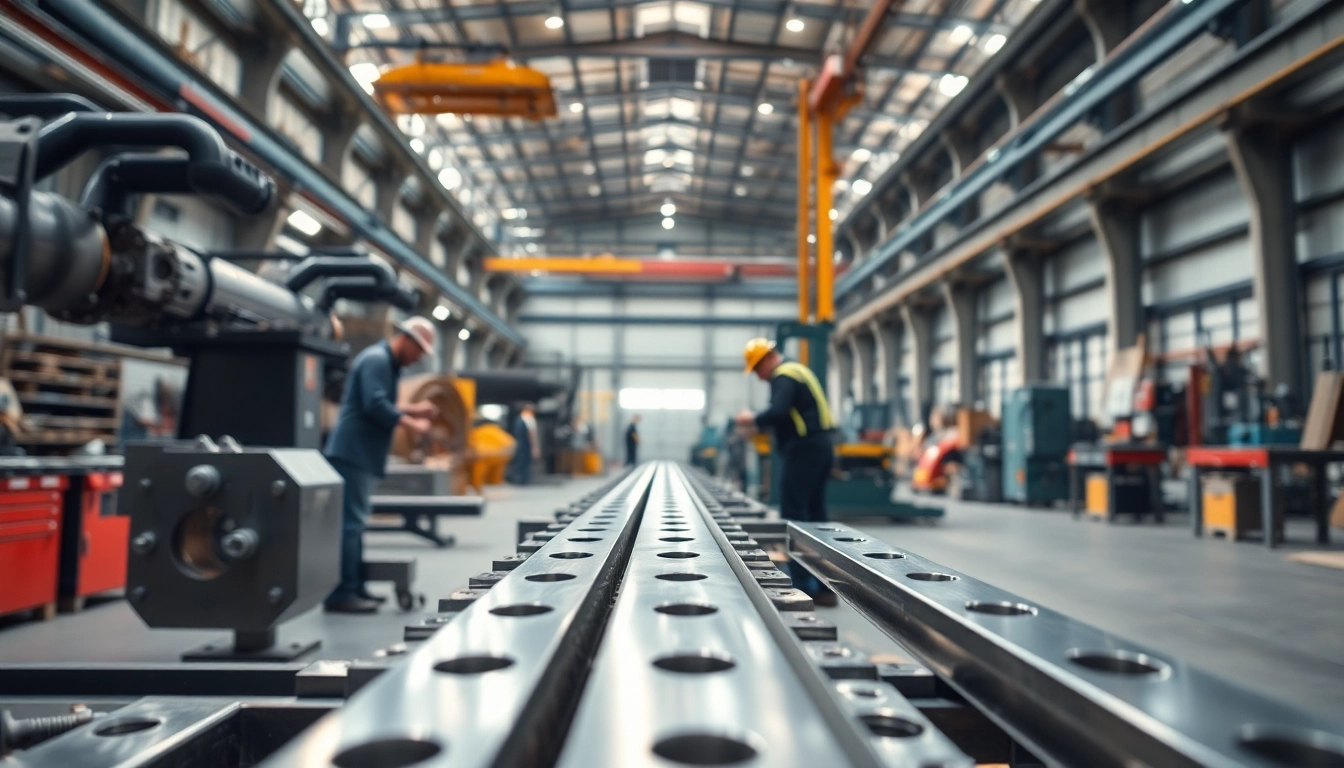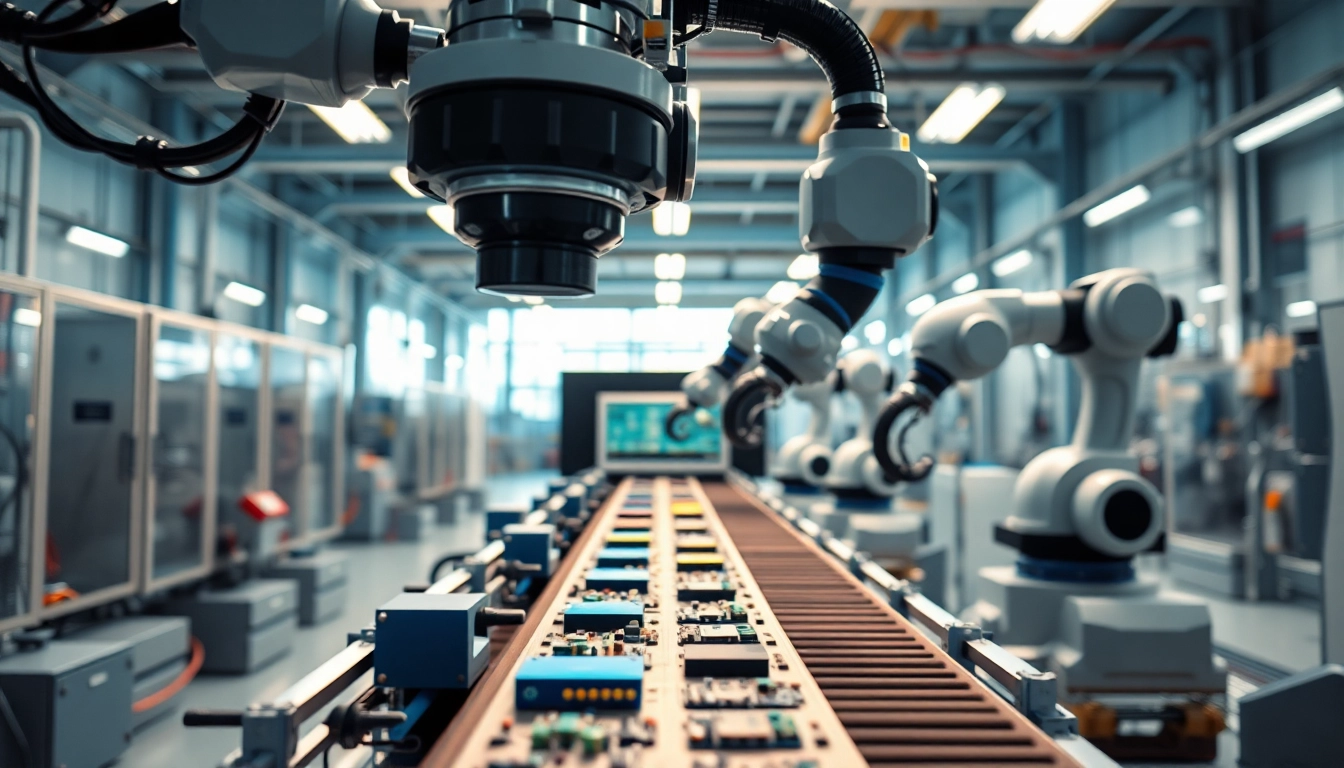Understanding the Functionality of Steel Fabrication Shop
What is a Steel Fabrication Shop?
A steel fabrication shop serves as an essential hub where raw steel is transformed into usable products through various processes. These shops play a critical role in multiple sectors, including construction, manufacturing, and industrial applications, offering custom solutions tailored to the specific needs of their clients. The work done in a steel fabrication shop not only requires technical knowledge and precision but also an artistic understanding of how the fabricated parts will fit into larger projects.
The Processes Involved in Steel Fabrication
The journey of steel from raw materials to finished products involves several key processes. Each step is important to ensure the final product meets both design specifications and quality standards.
- Cutting: This is generally the first stage in fabrication. Steel sheets or beams are cut to size using tools such as saws, lasers, or plasma cutters. The choice of cutting method can vary depending on the thickness and grade of the steel being worked on.
- Bending: After cutting, the steel pieces often need to be bent into specific shapes. This is accomplished using press brakes or other bending machinery, which applies force in a controlled manner to achieve the desired angle and curve.
- Welding is a pivotal process where two or more pieces of steel are fused together using heat and pressure. Different welding techniques—such as MIG, TIG, and stick welding—are employed based on the material thickness and application requirements.
- Finishing: Once fabrication is complete, the pieces undergo finishing processes, such as grinding, polishing, or applying protective coatings. This stage not only enhances the appearance but also improves resistance to corrosion and wear.
Key Equipment and Tools Used in Steel Fabrication Shop
The efficiency of a steel fabrication shop hinges on the machinery and tools it employs. Some of the most vital equipment includes:
- Band Saws: Primarily used for cutting metal pieces at various angles with high precision.
- Plasma Cutters: These are essential for cutting thick steel plates and are valued for their speed and efficiency.
- Welders: Different types of welding machines are crucial depending on the welding processes being used.
- Press Brakes: This equipment is used to bend and form steel components into predetermined angles.
- Drills and Taps: Employed for creating holes in steel for bolting or rivetting materials together.
Choosing a Steel Fabrication Shop: What to Consider
Evaluating Expertise and Experience
When selecting a steel fabrication shop, the first factor to consider is the experience and expertise of the team. A shop that has a wealth of industry experience typically understands the nuances of various materials and processes, allowing them to handle complex projects more effectively. Checking the fabricator’s portfolio can also provide insights into their capabilities and specialties.
Assessing Quality Assurance Practices
Quality assurance is critical in steel fabrication as it directly impacts the durability and safety of the final products. Look for shops that implement rigorous quality control protocols. Certifications from recognized industry standards can be an indicator of a commitment to maintaining high quality in their output.
Analyzing Cost-Effectiveness of Services
Cost is often a determining factor in choosing a fabrication shop. A thorough price analysis should go beyond just comparing quotes. Consider the overall value, including material quality, craftsmanship, and timelines. It’s beneficial to request a detailed breakdown of costs to make more informed decisions.
Common Applications for Steel Fabrication Shop Services
Industrial Applications of Steel Fabrication
Steel fabrication supports a wide range of industrial applications, including equipment manufacturing, pipeline construction, and heavy machinery parts production. Custom fabrication helps meet the unique demands of different industrial sectors.
Construction Projects and Steel Fabrication
In construction, steel fabrication is essential for creating framework, reinforcement bars, and structural components that ensure the integrity of buildings. The versatility of steel allows for designs that can accommodate various architectural styles, from residential homes to skyscrapers.
Custom Fabrication Solutions for Unique Needs
Custom fabrication is tailored to meet specific project requirements that off-the-shelf solutions cannot satisfy. From specialized machinery parts to unique architectural features, skilled fabricators can adapt designs based on client specifications, paving the way for innovative solutions in various sectors.
Best Practices for Working with a Steel Fabrication Shop
Communicating Your Project Requirements Effectively
Clear communication is the bedrock of successful collaborations with steel fabrication shops. Clients should provide detailed specifications, including drawings, material descriptions, and intended functionalities to eliminate ambiguity. Regular check-ins and updates can help keep projects on track.
Establishing Timelines and Milestones
Timelines are critical in managing the production of steel components. Both parties should agree on a project timeline that includes significant milestones to monitor progress. This ensures that everyone is aligned and can adjust when unforeseen challenges arise.
Feedback and Adjustment Processes During Production
Feedback loops during the production phase allow for adjustments to be made proactively. Clients should encourage open lines of communication to address any issues promptly, enhancing the final output quality.
Measuring Success of Your Steel Fabrication Project
Tracking Quality and Performance Metrics
To assess the success of a steel fabrication project, establish quality and performance metrics before commencing work. These could include tolerances on material specifications, production efficiency, and adherence to timelines. Evaluating these metrics post-production can reveal areas for improvement.
Evaluating Customer Satisfaction and Outcomes
Customer feedback is invaluable in gauging the success of a project. Surveys or follow-up meetings can provide insights into satisfaction levels regarding communication, quality of work, and overall delivery. Acting on this feedback can help fabricators continuously enhance their services.
Long-term Considerations for Future Projects
Lastly, consider the implications of a finished project on future endeavors. Integrating lessons learned into subsequent projects can cultivate stronger partnerships with fabrication shops and improve overall efficiency in your operations.



